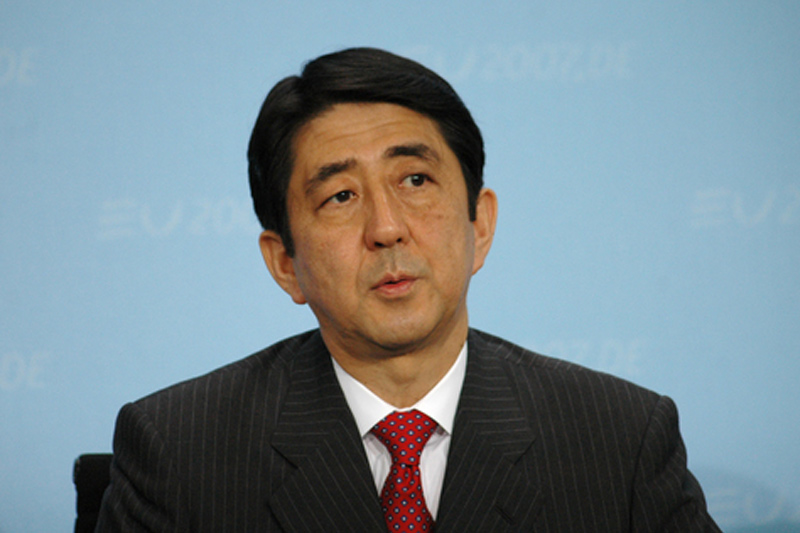By Yoshifumi Takemoto
TOKYO (Reuters) - A top Japanese government official said Prime Minister Shinzo Abe should delay a planned sales-tax increase, the strongest sign yet that economic weakness is causing concern among those close to the premier ahead of the difficult tax decision.
"I think it should be delayed" by a year and a half to April 2017, the prominent official told a small group of people in a recent conversation on condition of anonymity. He expressed concern that raising the national sales tax too soon after a damaging April hike could derail an economic recovery.
Powerful interests like the Finance Ministry, the Bank of Japan and major corporations want Abe to raise the tax as planned next year to keep Japan's promise to reduce the biggest debt burden in the industrial world. But the economic and political environment is making it harder for Abe to make unpopular policy choices.
Recovery in the world's third-biggest economy is struggling, Abe's popularity has taken a hit with two Cabinet ministers resigning in political scandals, the U.S. Treasury Department is pushing Tokyo not to go too fast on budget-balancing and Abe's party faces tough regional elections next April.
An 18-month delay in the tax hike would be in line with recommendations from Etsuro Honda, a University of Shizuoka professor and a prominent outside architect of Abe's policies to revive growth and banish deflation.
"There's a great danger from the next sales tax hike given the current situation where the positive effects of 'Abenomics' and the negative impact of April's sales tax hike are offsetting each other," Honda told reporters on Wednesday after meeting a group of more than 40 ruling party lawmakers who are growing wary about the next tax hike.
Abe raised the sales tax to 8 percent from 5 percent in April, the first of a planned two-stage increase that is the boldest attempt in nearly two decades to curb public debt that is well over twice the size of the economy.
That hike walloped personal spending, knocking the economy for an unexpectedly deep 7.1 percent annualized contraction in the second quarter, the worst fall since the global financial crisis in early 2009.
Abe has said he is "neutral" over his December decision whether to proceed with the plan to raise the tax to 10 percent in October 2015 - doubling the tax rate over just 18 months. He has stressed the need for both fiscal reform and continued recovery.
The prime minister this month told the Financial Times that while it is necessary to raise the tax for the benefit of future generations, it would be "meaningless" if this inflicted too much damage on the country's economy. This was largely a repetition of Abe's position.
The two-step tax increase was decided by major parties and written into law before Abe came to power in 2012, but it requires the prime minister to certify that the economy is strong enough to withstand a further hike.
"What country has ever raised tax by 2 percentage points just a year and a half after a tax hike?" the senior official said. "The logic that (the government must proceed) because the law was already decided doesn't hold up."
Respondents in a Reuters poll last week largely expect Abe to proceed with the tax hike as scheduled, though not all think it's a good idea. "Given the prospects of a slower global growth, it would be difficult for the prime minister to risk another tax-hike slump on the economy," said economist Stefan Grosse at NORD/LB.
Abe's government last week cut its economic assessment for a second straight month and lowered its assessment of industrial output for the first time in five months as weak consumption following April's tax hike causes companies to cut production.
The BOJ's closely watched tankan survey this month showed that sentiment in the services sector worsened in the third quarter as the economy struggled to shake off the tax hike.
And as the recovery falters, Abe finds himself in an unaccustomed political pinch.
His government's approval rating has slumped to 53 percent, still solid for a Japanese leader, but down 9 points in less than a month, according to an opinion poll on Sunday in the Yomiuri newspaper, Japan's largest.
The survey found 71 percent against raising the sales tax on schedule, versus 26 percent in favor.
Proponents of the tax hike - including BOJ Governor Haruhiko Kuroda, whose central bank buys some 70 percent of new Japanese government bond issuance - fear that a delay could shake investor confidence in Japan's fiscal reform, causing a dangerous spike in Japanese government bond (JGB) yields.
But Tokyo University economist Shin-ichi Fukuda said, "As long as the BOJ is buying large amounts of JGBs, a short-term rise in yields isn't a big concern." The 10-year JGB yields less than 0.5 percent.
(Additional reporting by Izumi Nakagawa; Writing by William Mallard; Editing by Neil Fullick)
